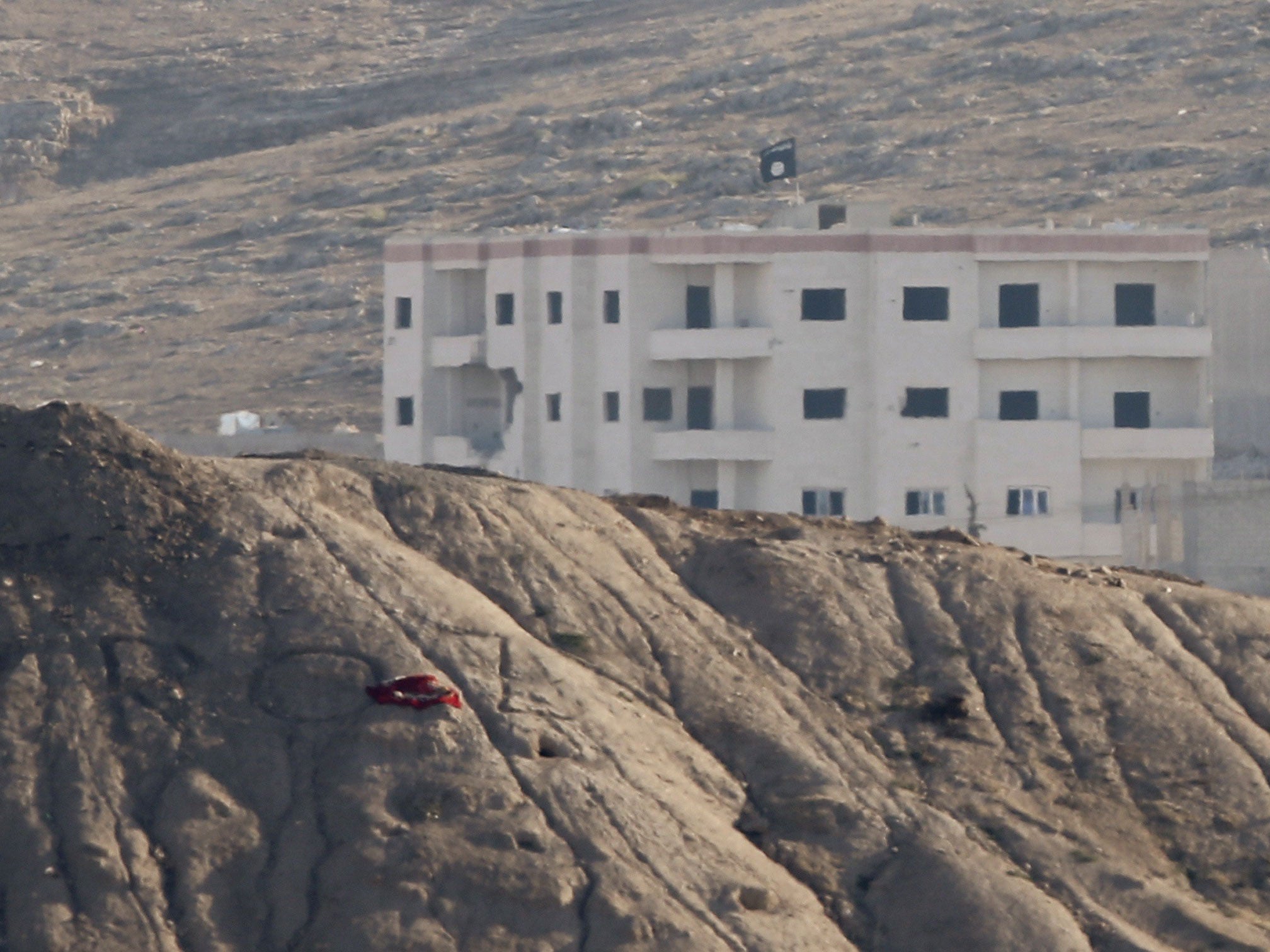Erdogan warns Kobani is 'about to fall to Isis' as militants advance on Syria-Turkey border town
Militants fighting Kurdish defenders have taken control of three districts

The Turkish President Recep Tayyip Erdogan has warned Kobani is about to fall to Isis, hours after militants backed by tanks and artillery pushed into the Syrian border town with Turkey.
Kurdish forces are struggling to repel the extremists after Isis (also known as Islamic State) militants raised two of the group's black flags on the outskirts of Kobani and crossed into a southern district of the town.
"They're fighting inside the city. Hundreds of civilians have left," said Rami Abdurrahman, the director of the Syrian Observatory for Human Rights. "The Islamic State controls three neighbourhoods on the eastern side of Kobani. They are trying to enter the town from the south west as well."
Mr Erdogan said the Western coalition air campaign will not be enough to halt the advance and called for greater cooperation with the Syrian opposition.
"Kobani is about to fall," he told Syrian refugees in the Turkish town of Gaziantep, near the border.
"We asked for three things: one, for a no-fly zone to be created; two, for a secure zone parallel to the region to be declared; and for the moderate opposition in Syria and Iraq to be trained and equipped."
Since it began its offensive in mid-September, Isis has advanced through one Kurdish village after another as it closed in on its main target, Kobani, also known as Ayn Arab. The assault has forced about 160,000 Syrians to flee and placed a severe strain on Kurdish forces.
Turkish tanks and other ground forces have been stationed along the border within a few hundred meters of the fighting in Kobani, also known as Ayn Arab, but have not yet intervened.
Capturing Kobani would give Isis, which already rules a huge stretch of territory spanning the Syria-Iraq border, a direct link between its positions in the Syrian province of Aleppo and its stronghold of Raqqa to the east.
After initially setting up positions to the east, south and west of the town, Isis shelled Kobani for days to try to loosen up the defences.
The Syrian Observatory for Human Rights said about 20 Isis fighters managed to sneak into the eastern part of Kobani overnight, but were ambushed and killed by Kurdish militiamen.
As fighting raged within sight of the Turkish border, the country's defence minister Ismet Yilmaz said the Nato alliance had drawn up a strategy to defend Turkey, a Nato member, if it is attacked along its frontier with Syria. The move came at Turkey's request.
Yesterday's heavy clashes followed a particularly bloody Sunday, when more than 45 fighters on both sides were killed, according to the observatory and the Kurdish force known as the People's Protection Units, or YPG.
The dead included a Kurdish female fighter who blew herself up, killing 10 jihadists. A YPG statement identified her as Deilar Kanj Khamis, better known by her military name, Arin Mirkan.
She was a member of the Women's Protection Units, a branch of the main Kurdish militia. The force has more than 10,000 female fighters who have played a major role in the battles against Isis.
Additional reporting by Reuters and Associated Press
Join our commenting forum
Join thought-provoking conversations, follow other Independent readers and see their replies
Comments